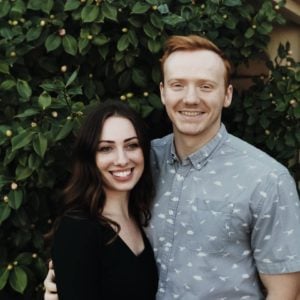 This summer Jacob Trotter has an opportunity he couldn’t have imagined when he first enrolled in The Master’s Seminary in the fall of 2019. He will spend 30 days in Wittenberg, Germany studying the Protestant Reformation in the city where it began more than 500 years ago.
This summer Jacob Trotter has an opportunity he couldn’t have imagined when he first enrolled in The Master’s Seminary in the fall of 2019. He will spend 30 days in Wittenberg, Germany studying the Protestant Reformation in the city where it began more than 500 years ago.
Jacob is part of the first ever Wittenberg Student and Research Fellowship at the Wittenberg Center for Reformation Studies. He will join ten other students of history and theology from Oxford, Durham, Yale, Baylor, University of Helsinki, St. Paul’s University, Vanderbilt, and Southwestern Baptist Theological Seminary. These students will immerse themselves in the history, geography, architecture, and, most importantly, theology of the reformation. They will go to the Castle Church of Wittenberg, where Martin Luther nailed his 95 theses to the front door. They will also see Luther’s home and the monastery where he first taught justification by faith alone. Alongside the history Jacob will experience as he visits these historical sites, he will also engage with reformation scholars, who will come to Wittenberg from around the world to lecture and talk about how the reformation changed the church and the world.
“All of western Christianity lives in the wake of the Reformation” Trotter said. “No branch of Christianity, at least in the west, is untouched by what started in Wittenberg 500 years ago. I can read about the reformation—I can even interact with the best Reformation scholars—but with this program I can study with them at the birthplace of the reformation and understand it in its historical context. That’s an invaluable opportunity.”
Trotter was accepted into this unique fellowship in large part because of the encouragement of Dr. Peter Sammons, professor of theology at The Master’s Seminary. Trotter has taken several theology classes from Dr. Sammons, including a class on the attributes of God and one on the theology of John Calvin, another significant figure in the protestant reformation. When Dr. Sammons heard about this opportunity to study in Wittenberg, he encouraged Jacob to apply and recommended him to those leading the fellowship.
“Jacob has demonstrated an aptitude for theological research. He’s also able to comprehend complex topics,” Dr. Sammons said. “Add to that his humility and integrity. That’s crucial as he represents The Master’s Seminary and, more importantly, Christ.”
Dr. Sammons says that Jacob’s involvement in this research fellowship shows that TMS students can participate in the highest level of theological scholarship without losing their commitment to Christ and His Word.
“This is a great opportunity for Jacob to strengthen his intellectual muscles in a much different context than TMS” Dr. Sammons said. “It also will require charity, grace, and conviction as he interacts with people who may have a different perspective on the reformation, the Bible, and the Christian life.”
“We believe the principles of the reformation,” Trotter said. Those include Sola Scriptura (Scripture alone), Sola Fide (faith alone), Sola Gratia (grace alone), Solus Christus (Christ alone) and Soli Deo Gloria (for the glory of God alone). “Sometimes non-evangelicals have done a better job of studying the history and implications of the reformation we have. That’s convicting to me. If we claim to value the Reformation, we should prove it with our academic pursuits.”
Jacob can see God’s providence guiding him to Wittenberg, just as he guided him toward TMS three years ago. In college at Moody Bible Institute, he took two systematic theology classes from Dr. Kevin Zuber. Before coming to TMS, Dr. Zuber taught theology for many years at Moody. Jacob enrolled in one of his last theology classes at Moody before Dr. Zuber came to TMS. Now, he’s had the privilege of taking classes from Dr. Zuber at both Moody and TMS.
Through Dr. Zuber’s influence, and the encouragement of his wife Julie, who he met at Moody, Jacob started to study reformed theology. The doctrines of grace were not taught in the church where Jacob grew up. At first, it was tough for him to commit to predestination, election, and other concepts like limited atonement. But as he studied Scripture, he became more certain that what he was hearing from Dr. Zuber and Julie, was in fact biblical. Since then, Jacob has grown to love these doctrines and he sees God’s handiwork in this opportunity to study the movement linked to these precious doctrines.
“At TMS, we want to stand firmly in the stream of the reformation,” Trotter said, “We need to regularly go back 500 years to the time of the reformation to learn the lessons it has to teach us. The church and the Christian life should be built around God’s Word and the doctrine contained in it. That’s the lesson of the reformers, and I’m eager to study them and apply the lessons of that time to the church today.”